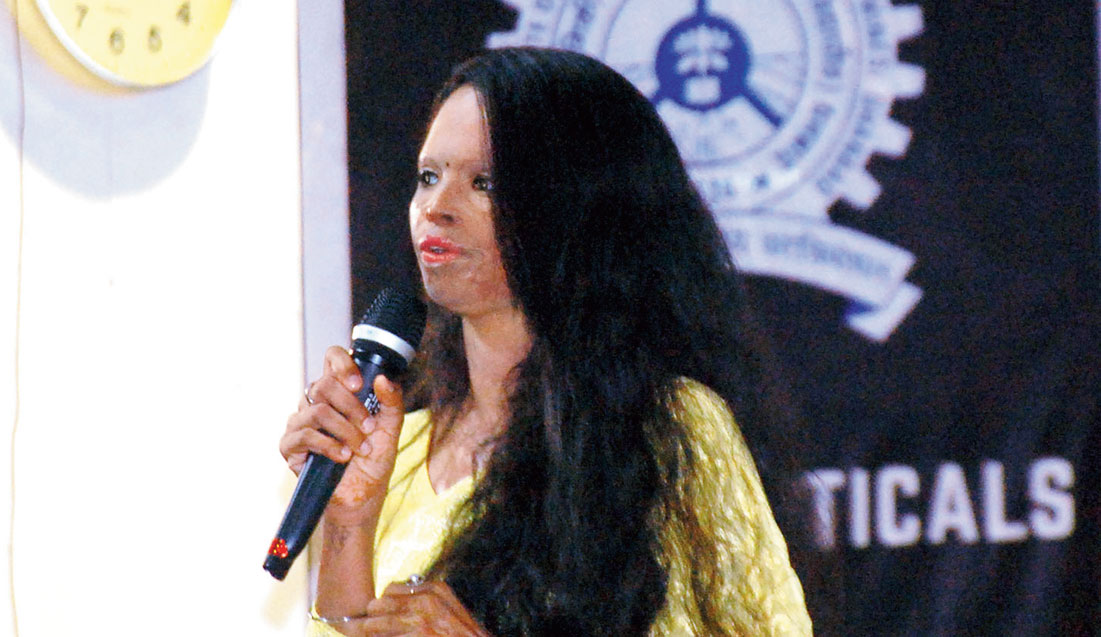From the helpless girl who lay writhing in pain on the road following an acid attack to a role model, the inspiring tale of a 29-year-old held around 800 students of IIT(ISM) and BIT-Sindri in thrall here on Sunday.
Acid attack survivor Laxmi Agarwal, who has inspired Meghna Gulzar to direct a movie based on her life called Chhapaak, shared the story of her undaunted spirit at Penman auditorium of IIT(ISM) at an event called “Cross junction of inspiring stories” organised by IIT(ISM) chapter of International Association of Students in Economic and Commercial Sciences (AIESEC).
“Always discuss your problems with your parents, because they are your best friends,” Laxmi, who spearheaded a campaign against the sale of acid, said, adding that she could have avoided the attack had she taken her own advice.
In 2005, a 15-year-old Laxmi was accosted by a 32-year-old man who threw acid on her for rejecting his advances.
“Don’t depend on the society to solve your problems. It is full of negative people who discourage you, but fall in line once you become successful,” she said, adding that her petitions led the Supreme Court to direct the Centre and state governments to regulate the sale of acid and prompted Parliament to make prosecutions of acid attacks easier to pursue.
During her half-hour speech, she urged the audience to make a sustained and effective use of social media for furthering social causes and bring about changes in law.
Recounting how she thought of ending her life after seeing her face in the mirror following the attack, Laxmi said: “The thought never crossed my mind once I decided to pick up the pieces of my life and fight back. Now, I am thankful to the challenges in my life that made me stronger.”
Earlier, Farrhad Acidwalla, a 25-year-old entrepreneur, investor and a TEDx speaker, took to the stage and asked students to think out of the box and never shy away from failures.
Acidwalla, the founder of web solution firms Rockstah Media and CYBERNETIV Digital, cited the example of San Francisco-based entrepreneur Apoorva Mehta and said 20 of his business ideas had failed before grocery delivery start-up Instacart became a success.
On ways to deal with a problem when one is stuck in an impasse, Acidwalla said: “You need to do radical things and develop the habit of preempting such deadlocks.”
Nupur Pavan Bang, associate director of Thomas Schmidheiny Centre for Family Enterprise at the Indian School of Business, advised students to discuss their confusion over career and personal issue with family members, mentors and friends.
Anto Philip (21), the Bangalore based founder of India’s biggest customised wristband house Big Band Theory, asked students to convince their parents before convincing the world as far as career decisions were concerned.
The IIT(ISM) chapter of AIESEC had organised a similar programme in 2017 and 2018.











